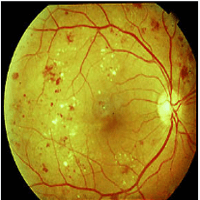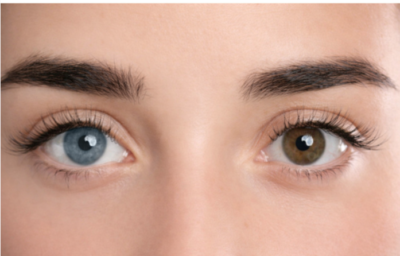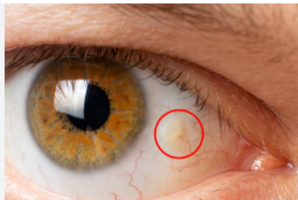Key Takeaways
- Eye allergies are caused by the immune system overreacting to things in the environment, such as pollen, dust, and many pet dander.
- Maintaining a clean home and using an air purifier can help to reduce allergens and even eye irritation.
- Staying hydrated, as well as drinking lots of water, and using a humidifier can help to avoid dryness and irritation in the eyes.
- Naturally, cold compresses, cucumber slices, and green tea bags are a great way to soothe eye irritation quickly.
- If you wear makeup, consider switching to hypoallergenic makeup and cleaning your brushes often to avoid eye irritation from cosmetics.
We’ve all been there—rubbing our eyes in frustration after a long day of dealing with the relentless itch, redness, and watery discharge that often comes with eye allergies. Whether it’s due to seasonal changes, environmental triggers, or dust and pollen, eye irritation can quickly become a source of constant discomfort. But fear not! With a few simple lifestyle changes, some mindful practices, and the right products, you can find relief and protect your precious eyes from the nuisances of allergies.
In this guide, we’ll explore practical, effective, and often overlooked tips to reduce eye irritation and keep your eyes healthy and comfortable year-round.
What Causes Eye Irritation and Allergies?
Before diving into the remedies, it’s important to understand what causes the discomfort. According to clinical observations, eye allergies develop when the immune system overreacts to environmental allergens such as pollen, dust mites, pet dander, or mould spores, triggering inflammation and common symptoms like itching, redness, and watering. These irritants—such as pollen, dust mites, pet dander, and mold—trigger the release of histamines in the body, causing inflammation in the eyes.
Common symptoms include:
- Itching and redness
- Watery eyes
- Swollen eyelids
- Sensitivity to light
- A gritty or burning feeling in the eyes
These symptoms can range from mild irritation to severe discomfort, making everyday activities like reading, working, or even enjoying the outdoors difficult. But don’t worry, relief is within reach!
1. Maintain Clean and Allergen-Free Surroundings
One of the simplest yet most effective ways to reduce eye irritation is to ensure your environment is free from allergens. Here’s how you can do that:
Keep Windows Closed During High-Allergen Seasons: If you’re prone to seasonal allergies, such as pollen sensitivity in spring, make sure to keep your windows closed, especially during the early morning or evening hours when pollen counts are highest.
Use Air Purifiers: High-quality air purifiers with HEPA filters can help capture allergens like pollen, pet dander, and dust mites, ensuring that the air you breathe is cleaner and more comfortable for your eyes.
Regular Cleaning: Dust, vacuum, and wipe surfaces regularly to prevent allergens from settling. Pay extra attention to places where dust tends to accumulate, like curtains, rugs, and upholstered furniture. Consider using a damp cloth to trap dust rather than spreading it into the air.
2. Stay Hydrated and Protect Your Eyes from Dehydration
Did you know that hydration plays a crucial role in eye health? Dehydrated eyes are more prone to irritation, especially in dry environments or during allergy flare-ups.
Drink Plenty of Water: Drinking water throughout the day ensures your body, including your eyes, stays hydrated. This is particularly important if you’re spending long hours in air-conditioned or heated spaces that can dry out your eyes.
Use a Humidifier: Dry indoor air can exacerbate eye irritation, especially during the colder months. A humidifier adds moisture to the air, keeping your eyes from becoming overly dry and irritated.
3. Give Your Eyes a Break: Follow the 20-20-20 Rule
One of the most common causes of eye irritation is digital eye strain. If you spend hours staring at a screen, it’s easy to forget to blink, leading to dryness and discomfort. This becomes even worse if you already suffer from allergies.
The 20-20-20 Rule: Every 20 minutes, take a 20-second break to look at something 20 feet away. This simple habit reduces strain and gives your eyes a chance to relax and refocus. And don’t forget to blink regularly!
Use Artificial Tears: If your eyes feel dry, use preservative-free artificial tears to lubricate your eyes. Be sure to choose a product that suits your needs, as some types are specifically designed for dry eye relief caused by allergies.
4. Try Natural Remedies for Quick Relief
Sometimes, all your eyes need is a little soothing touch from nature. Several natural remedies can provide immediate relief from eye irritation and help calm allergy symptoms.
Cold Compresses: Many patients report that applying a cold compress over closed eyelids for 10–15 minutes helps relieve swelling, irritation, and discomfort quickly. It’s a simple and commonly recommended step in managing eye-related inflammation.
Cucumber Slices: Cucumber is a natural anti-inflammatory that can soothe tired, puffy eyes. Place cool cucumber slices over your eyes for 10-15 minutes to reduce swelling and irritation.
Green Tea Bags: While not a substitute for medical treatment, green tea contains antioxidants such as catechins, which may help soothe mild eye inflammation when used as a supportive remedy. Place cooled, used tea bags over your eyes for about 10 minutes. This gentle remedy will leave your eyes feeling relaxed and less irritated.
5. Rethink Your Makeup and Skin Care Routine
Cosmetic products can often trigger or worsen eye irritation, especially if you’re sensitive to certain ingredients. Here’s how to ensure your makeup routine doesn’t contribute to your allergy woes:
Switch to Hypoallergenic Products: Choose makeup, eye creams, and skincare products labeled as hypoallergenic or for sensitive skin. This minimizes the risk of allergic reactions that could cause further irritation.
Avoid Waterproof Formulas: Waterproof mascaras and eyeliners can be tough to remove and may leave behind residues that irritate the eyes. Opt for gentler formulas that are easier to remove without excessive rubbing.
Regularly Clean Makeup Brushes: Bacteria and allergens can accumulate on your makeup brushes. Wash them frequently to prevent them from transferring harmful particles onto your skin and eyes.
6. Use Prescription or Over-the-Counter Medications
For more persistent or severe eye irritation, medications may be necessary to control symptoms. Here are a few options to consider:
Antihistamines: Over-the-counter antihistamines, whether taken orally or as eye drops, are frequently recommended to reduce the histamine response, easing symptoms such as redness, itching, and watery eyes caused by allergic conjunctivitis.
Steroid Eye Drops: Steroid eye drops may be prescribed by an ophthalmologist for short-term use to control inflammation in moderate to severe cases. These drops must be used strictly under medical supervision due to the risk of side effects with prolonged use.
Decongestant Eye Drops: If you’re dealing with red, swollen eyes, decongestant drops can help constrict the blood vessels in your eyes, reducing redness and puffiness. However, these should not be overused, as they can lead to rebound redness.
7. Keep Your Hands Off Your Eyes
As tempting as it might be to rub your eyes when they feel itchy or irritated, doing so can make the situation worse. Rubbing your eyes can spread allergens, increase irritation, and even lead to more serious issues, such as corneal abrasions.
Wash Your Hands Frequently: If your eyes are irritated, wash your hands thoroughly before touching them. This helps reduce the risk of transferring allergens or bacteria into your eyes.
Wear Protective Eyewear: If you’re heading out into an environment where allergens are abundant (like a pollen-heavy park), wearing sunglasses or protective goggles can shield your eyes from direct exposure and prevent allergens from settling on your eyes.
8. Consider Allergy Shots (Immunotherapy)
For those whose eye allergies are chronic and unmanageable with typical treatments, allergy shots may be an option. Allergy immunotherapy involves receiving regular injections of small amounts of the allergens you are sensitive to, helping your body build tolerance over time.
If over-the-counter medications or lifestyle changes aren’t providing relief, consult with an allergist about whether immunotherapy might be a good solution.
The Key to Healthy Eyes is Prevention and Care
Eye irritation and allergies are manageable conditions. With the right diagnosis and personalised treatment, our specialists at Dr Agarwal’s Eye Hospital have helped many patients find lasting relief and improved comfort in their daily lives. By taking proactive steps to reduce exposure to allergens, maintaining proper hydration, incorporating natural remedies, and using appropriate medications when needed, you can keep your eyes comfortable and irritation-free.
At Dr Agarwal’s Eye Hospital, we believe that proactive eye care, including timely allergy management, is vital for maintaining long-term vision health and overall eye comfort. Whether it’s cleaning your living space or taking regular breaks from screens, each small effort can make a big difference in preventing eye irritation and allergies. Here’s to clear, comfortable, and healthy eyes every day!
When to See an Eye Specialist for Allergy-Related Irritation
While mild eye allergies often respond well to over-the-counter treatments, certain symptoms require professional attention. You should consult an eye specialist if:
- Symptoms persist for more than a week despite medication
- Vision becomes blurry or distorted
- You experience severe redness, swelling, or pain
- There is a thick, yellow discharge or crusting around the eyes
- Both eyes are severely affected, or symptoms worsen over time
Allergy-related eye conditions can sometimes mimic more serious infections or inflammatory diseases. A comprehensive eye examination helps rule out complications and ensures that your treatment plan is accurate, safe, and effective.
How Our Eye Care Experts Approach Allergy Management
At Dr Agarwals Eye Hospital, our approach to managing ocular allergies is rooted in evidence-based practice and personalised care. Here’s how we typically proceed:
- Detailed Evaluation: We begin with a thorough medical history and eye examination to determine the type and severity of the allergic response.
- Tailored Treatment Plan: Depending on your diagnosis, we may prescribe antihistamine or mast-cell stabiliser eye drops, lubricating drops, or short-term steroid use under close monitoring.
- Identifying Triggers: We help you identify and manage exposure to environmental allergens such as pollen, pet dander, or dust mites.
- Long-Term Management: For chronic allergic conjunctivitis, we provide ongoing support and review to prevent flare-ups, minimise dependency on steroids, and protect your eye health.
Our goal is not just symptom relief but long-term control and prevention of complications through careful monitoring and follow-up care.
Risks of Self-Medicating Without Medical Guidance
Using over-the-counter conjunctivitis eye drops or allergy medications without consulting a doctor can lead to:
- Incorrect Diagnosis: You may mistake a serious infection or inflammatory condition for an allergy, delaying the correct treatment.
- Worsening Symptoms: Inappropriate or excessive use of decongestant eye drops can cause rebound redness and irritation.
- Steroid Overuse: Self-administering steroid drops without medical supervision may lead to elevated eye pressure, cataracts, or worsening infections.
- Masking Underlying Issues: Some systemic conditions (like autoimmune disorders) can mimic allergy symptoms and remain undetected without a proper eye evaluation.
For these reasons, it’s essential to avoid self-treatment and seek guidance from a qualified ophthalmologist who can recommend safe, effective, and tailored care.









